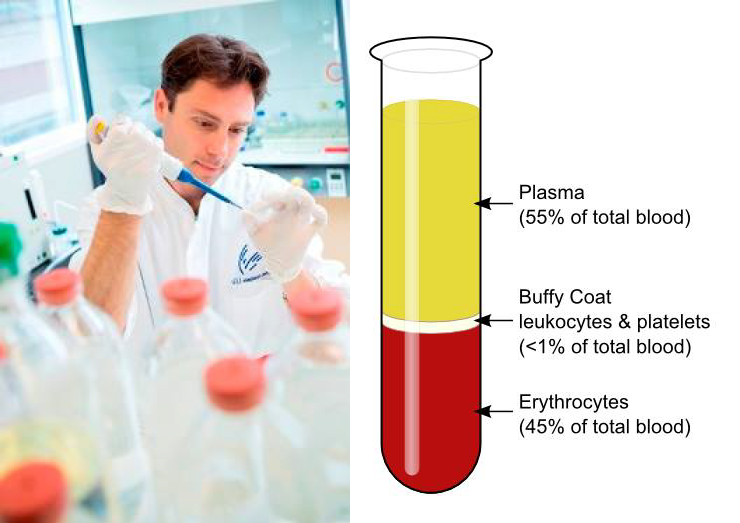According to the researchers at Amsterdam’s VU University Cancer Research Centre, the answer is yes. The research team, lead by Professor Tom Würdinger have, in fact, developed a technique that can detect cancer in the early stages using a single drop of blood.
The researchers discovered that platelets (colorless blood cells that help blood clot) from cancer patients contain RNA (copies of parts of the DNA) of the tumour.
“The platelets have such a unique feature that we can say it is breast cancer, lung cancer, or colon cancer,” says Würdinger. “Even in the earliest stage of the tumour, the test is positive.”
The team extracted and examined around six milliliters of blood from 283 patients with six different types of cancer. They isolated the platelets in the blood and determined that 100–500 picograms (pg) of total platelet RNA is sufficient to diagnose cancer. This amount is the equivalent of the total protein content in one mammalian cell.
They have not only found cancer with the method but are also able to identify what type of cancer it is and where the tumour is in the body.
While platelets normally ensure the coagulation of the blood, recent research shows that platelets also play an important role in tumour growth and metastasis of cancer. The platelets of patients with cancer contain unique RNA-patterns that make it possible to distinguish between healthy individuals and cancer patients. The technique successfully identified cancer in 96% of cases, the researchers found.
The research also showed that it was possible to link the RNA profile of platelets in cancer patients to the organ that it resides in. If there is metastasis, the platelets will show not only the organ cancer currently resides in but also where it originated.
The platelet profiles can also help to determine what type of therapy is the best by defining the mutations in the tumour DNA. And, it is possible to monitor a patient during the cancer treatment by taking blood measurements at different times to see if the treatment is effective.
The test is still in the experimental phase and Würdinger is working on perfecting it. “If it proves itself, it can replace existing cancer screening tests,” he says.
The center plans a large-scale validation of their findings by collecting blood from thousands of cancer patients for further test development. The plan includes partners in the United States with Massachusetts General Hospital and Harvard Medical School, and in Europe, with Umea University in Sweden.
The VU Medical Centre has established a company, thromboDx BV that has acquired exclusive rights to the development of the blood tests. And they are developing an app (application) that will diagnose cancer via a Wi-Fi connection based on the genetic profiles of platelets, giving them the ability to work with hospitals all over the world to diagnose and monitor cancer in patients.
“It is important to identify and treat cancer as early as possible,” says Würdinger. This new technique… can play a major role in this and hopefully save lives.”
Würdinger believes the test is “a revolutionary breakthrough” and patients diagnosed at the early stage with a cancer tumour have a better prognosis, and their survival rates increase.
The research is published in the latest edition of the academic journal Cancer Cell.
http://www.cell.com/cancer-cell/abstract/S1535-6108(15)00349-9


1 Comment
It is truly heartening to learn of new early detection advances. Eases my worries for my daughter and grandchild, hoping they will never have to face the battles we do. Thank you!